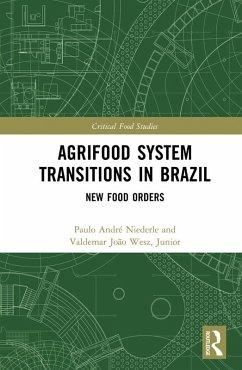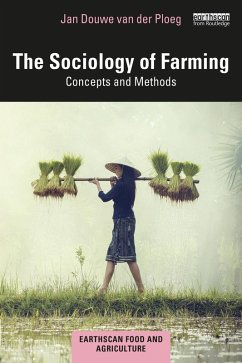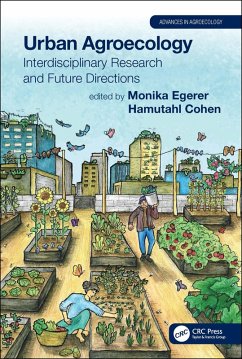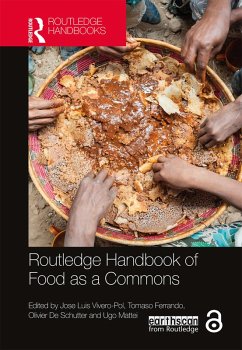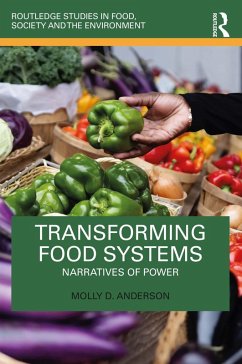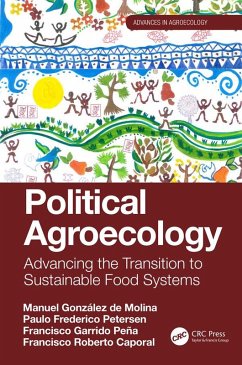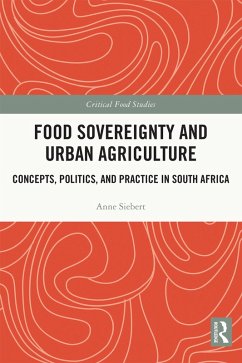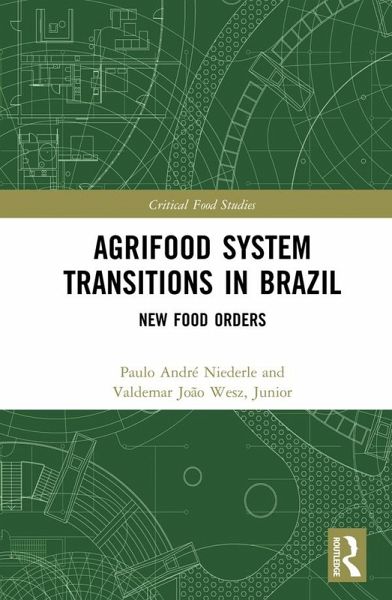
Agrifood System Transitions in Brazil (eBook, ePUB)
New Food Orders
Versandkostenfrei!
Sofort per Download lieferbar
41,95 €
inkl. MwSt.
Weitere Ausgaben:

PAYBACK Punkte
21 °P sammeln!
This book explores the agrifood system transitions in Brazil to provide a new understanding of the trajectory of agriculture and rural development in this country. It accentuates the increasing diversifi cation and hybridization of food production and consumption practices throughout history.With a framework that combines convention theory, neoinstitutional approaches and practice theory, this book suggests the concept of "food orders" which represents different arrangements of practices, institutions and sociotechnical artifacts. By exploring the interrelations between these elements, the boo...
This book explores the agrifood system transitions in Brazil to provide a new understanding of the trajectory of agriculture and rural development in this country. It accentuates the increasing diversifi cation and hybridization of food production and consumption practices throughout history.
With a framework that combines convention theory, neoinstitutional approaches and practice theory, this book suggests the concept of "food orders" which represents different arrangements of practices, institutions and sociotechnical artifacts. By exploring the interrelations between these elements, the book looks at six different food orders: industrial, commercial, domestic, aesthetic, civic and fi nancial, in tandem with examples of practices, sectors and territories to understand the dynamics of each one. This aids in understanding the main tendencies of the agrifood sector in such a vast country that, being a major player in global food markets, also affect production and consumption dynamics in several other countries. Besides, this book also seeks to comprehend the current institutional changes in Brazil that may be critical to interpret the global dissemination of populist and autocratic governments.
Offering key insights into the contemporary sociology of agriculture and food, this book demonstrates how strengthening democracy and supporting the organization of civil society are major challenges when we think about transition for sustainable food systems.
With a framework that combines convention theory, neoinstitutional approaches and practice theory, this book suggests the concept of "food orders" which represents different arrangements of practices, institutions and sociotechnical artifacts. By exploring the interrelations between these elements, the book looks at six different food orders: industrial, commercial, domestic, aesthetic, civic and fi nancial, in tandem with examples of practices, sectors and territories to understand the dynamics of each one. This aids in understanding the main tendencies of the agrifood sector in such a vast country that, being a major player in global food markets, also affect production and consumption dynamics in several other countries. Besides, this book also seeks to comprehend the current institutional changes in Brazil that may be critical to interpret the global dissemination of populist and autocratic governments.
Offering key insights into the contemporary sociology of agriculture and food, this book demonstrates how strengthening democracy and supporting the organization of civil society are major challenges when we think about transition for sustainable food systems.
Dieser Download kann aus rechtlichen Gründen nur mit Rechnungsadresse in A, B, BG, CY, CZ, D, DK, EW, E, FIN, F, GR, HR, H, IRL, I, LT, L, LR, M, NL, PL, P, R, S, SLO, SK ausgeliefert werden.




